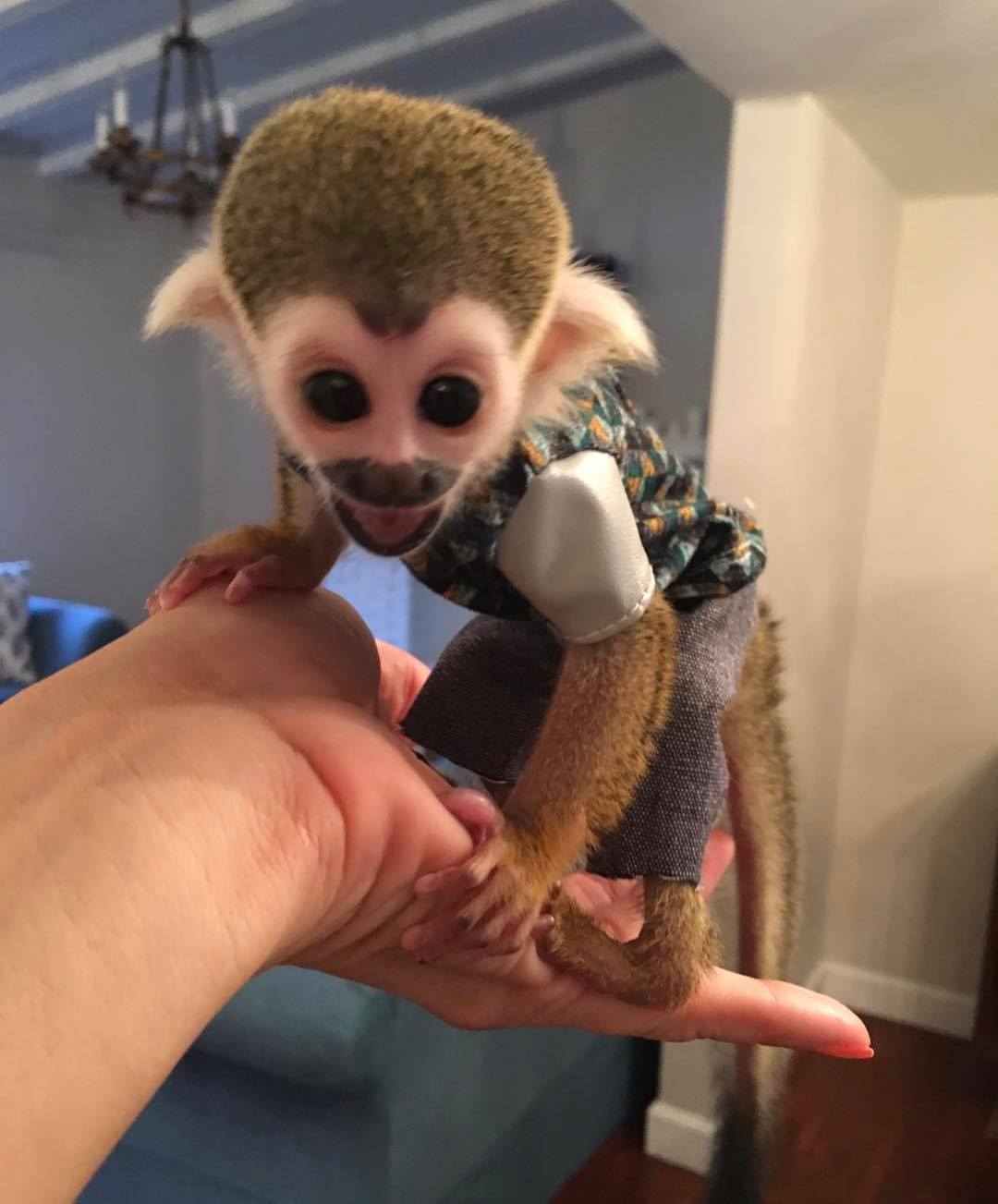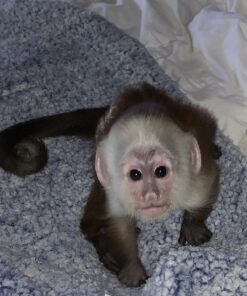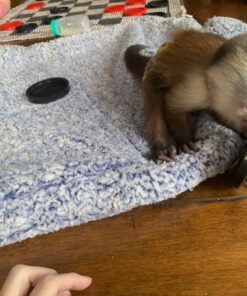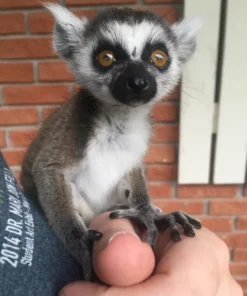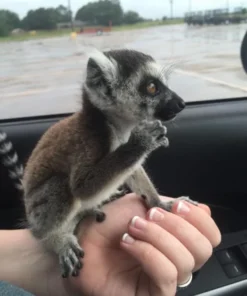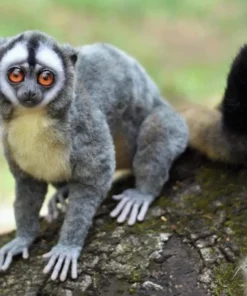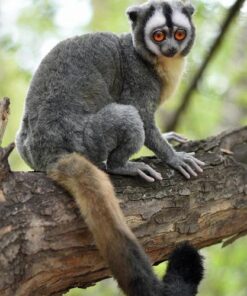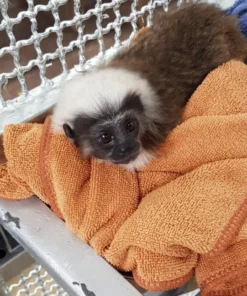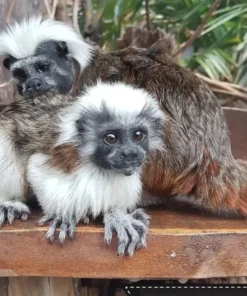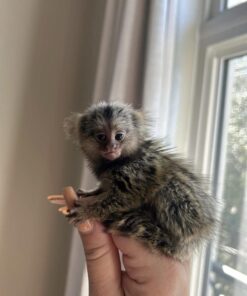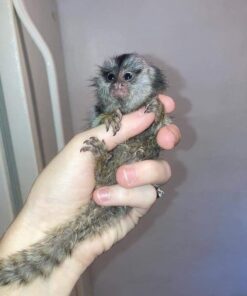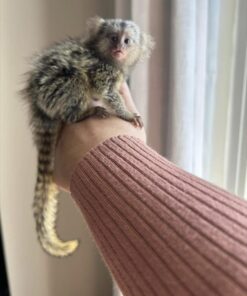$500.00 – $2,300.00
Unleash the curiosity with a Squirrel monkey. Browse our online marketplace to buy a Squirrel monkey and embark on an extraordinary journey with these fascinating creatures.
SKU: N/A
Category: MONKEYS FOR SALE
Tags: Buy Squirrel Monkey, Buy Squirrel Monkey near me, Buy Squirrel Monkey online, common squirrel monkey for sale, pet squirrel monkey for sale, Squirrel Monkey for sale, squirrel monkey for sale $100, Squirrel Monkey on sale, Squirrel Monkey pets shop, Squirrel Monkey pets store, squirrel monkeys for sale, squirrel monkeys for sale in florida
The Squirrel Monkey: A Fascinating and Playful Pet
Squirrel monkeys are one of the most captivating primates found in Central and South America. Known for their agile movements, expressive faces, and social behavior, these monkeys have become increasingly popular among exotic pet enthusiasts. While keeping a squirrel monkey as a pet is a significant commitment, many people are drawn to their intelligence, playful nature, and the deep bond they can form with their owners.
In this article, we’ll dive deep into the world of squirrel monkeys, covering everything from their behavior and habitat to the considerations of owning one as a pet. Additionally, we will provide insights into the **squirrel monkey for sale** market, including the **baby squirrel monkey price**, and the **squirrel monkey price range** to help potential owners make informed decisions.
Overview of the Squirrel Monkey
Squirrel monkeys (genus *Saimiri*) are small, agile primates native to the tropical rainforests of Central and South America, particularly in countries like Brazil, Peru, and Costa Rica. These monkeys live in large social groups, sometimes consisting of hundreds of individuals. In the wild, they spend most of their time in the trees, where they use their sharp claws and agile limbs to navigate branches and leap from tree to tree.
Squirrel monkeys are easily recognizable by their bright yellowish-orange fur, white face, and black “cap” on their heads. Despite their small size, they are highly intelligent and active creatures, constantly moving, exploring, and interacting with their environment.
Physical Characteristics
Squirrel monkeys are relatively small compared to other primates. They typically weigh between 1.5 to 2 pounds (700 to 900 grams) and measure around 10 to 14 inches in body length, with a tail that can be as long as their bodies. The tail, however, isn’t prehensile, meaning they don’t use it to grab onto things like some other primates do. Instead, the tail serves primarily for balance as they leap through the treetops.
Their fur is short and dense, with shades of grey, yellow, and orange. The white mask around their eyes, coupled with their black-capped heads, gives them a unique and expressive appearance, often referred to as “cute” or “mischievous.”
Behavior and Social Life
Squirrel monkeys are incredibly social animals, living in large groups called “troops.” In the wild, these groups can consist of 30 to 300 individuals. Communication among squirrel monkeys is complex, involving a combination of vocalizations, body language, and facial expressions. Their vocal range includes a variety of squeaks, chirps, and whistles that are used to communicate with one another in their densely forested environments.
In captivity, these social tendencies remain, which means they thrive on interaction with their owners and can become stressed or lonely if left alone for extended periods. If you’re considering getting a **baby squirrel monkey**, you should be prepared to invest time and effort into creating a stimulating and interactive environment to keep your monkey mentally and physically engaged.
The Challenges of Owning a Squirrel Monkey
Owning a squirrel monkey is not a decision to take lightly. While they are incredibly cute and entertaining, they require a significant level of care, attention, and dedication. They are not “low-maintenance” pets by any means, and potential owners should be aware of the challenges that come with having a **squirrel monkey for sale**.
1. **High Energy Levels**: Squirrel monkeys are constantly on the move. They need plenty of space to climb, jump, and explore. A small cage won’t suffice. Ideally, they should have a large, multi-level enclosure, complete with climbing structures, swings, and plenty of toys to keep them entertained. Without enough stimulation, they can become destructive or develop behavioral problems.
2. **Social Needs**: In the wild, squirrel monkeys live in large social groups, and even in captivity, they require a lot of social interaction. If you’re considering owning a **baby squirrel monkey**, it’s important to understand that they will need significant attention from you. If possible, keeping more than one monkey together can help satisfy their social needs.
3. **Dietary Requirements**: A balanced and varied diet is essential for a squirrel monkey’s health. In the wild, they eat a mix of fruits, insects, small vertebrates, and other plant matter. In captivity, you’ll need to replicate this diet as closely as possible, providing fresh fruits and vegetables, high-protein foods like mealworms or boiled eggs, and specially formulated primate chow. Ensuring your **baby squirrel monkey** has a proper diet can be costly and time-consuming.
4. **Long Lifespan**: Squirrel monkeys can live up to 20 years in captivity, so they represent a long-term commitment. They’ll require your care and attention throughout their entire lives, and prospective owners should be prepared for this level of responsibility.
5. **Legal Considerations**: Depending on where you live, owning a **squirrel monkey** may require special permits or may be prohibited altogether. It’s important to check local and state regulations before purchasing one. Some areas have strict rules regarding exotic pets, and failure to comply with these regulations can result in legal penalties.
Squirrel Monkey as a Pet: What You Should Know
If you’re seriously considering purchasing a **squirrel monkey for sale**, here are a few key things to know:
1. **Personality**: Squirrel monkeys are highly intelligent and curious. They can develop strong bonds with their owners, but they can also be temperamental. Like any primate, they may occasionally bite if they feel threatened or stressed. Training and consistent socialization from a young age can help mitigate behavioral issues, but potential owners should be prepared for the challenges that come with raising a primate.
2. **Housing**: A simple cage won’t cut it for a squirrel monkey. They need a large, spacious enclosure that mimics their natural habitat. The enclosure should have multiple levels, branches, and platforms for climbing. Providing a mix of toys and puzzles will keep them mentally stimulated. Additionally, it’s important to monkey-proof your home if they’ll have free time outside of their enclosure, as they’re known for their curiosity and ability to get into things.
3. **Health Care**: Regular veterinary care is essential for keeping your squirrel monkey healthy. Because they are exotic animals, not all vets are experienced in treating them. You’ll need to find a vet who specializes in primates and can help with vaccinations, diet recommendations, and any health issues that may arise.
4. **Cost of Ownership**: The **squirrel monkey price** can vary depending on where you purchase them, but they are generally quite expensive. In addition to the initial **baby squirrel monkey price**, the cost of food, veterinary care, housing, and enrichment items can add up quickly. It’s important to be financially prepared for the long-term costs of owning a monkey.
How Much Does a Squirrel Monkey Cost?
The **squirrel monkey price range** can vary greatly depending on factors such as age, health, and the reputation of the breeder. On average, you can expect to pay anywhere from $4,000 to $8,000 for a **baby squirrel monkey for sale**. This price may be higher if the monkey is rare or has a particularly desirable lineage.
In addition to the purchase price, there are other costs to consider, including:
– **Housing**: Building or purchasing a suitable enclosure can cost several hundred to several thousand dollars, depending on its size and complexity.
– **Diet**: Providing a varied and nutritious diet for your squirrel monkey can be costly, particularly if you include fresh fruits, vegetables, and high-protein foods in their daily meals.
– **Veterinary Care**: Exotic animals require specialized veterinary care, which can be more expensive than standard pet care. Regular check-ups, vaccinations, and treatments for any health issues can add up over time.
Finding a Squirrel Monkey for Sale
If you’re looking to buy a **squirrel monkey for sale**, it’s crucial to purchase from a reputable breeder or seller who prioritizes the health and well-being of the animals. Avoid buying from unregulated sources or illegal markets, as these monkeys may be wild-caught or suffer from health problems due to poor care.
When purchasing a **baby squirrel monkey**, ask the breeder about the monkey’s health history, diet, and socialization practices. Reputable breeders should be able to provide you with all the necessary information and answer any questions you have about caring for your new pet.
Final Thoughts
Owning a **squirrel monkey** can be a rewarding experience, but it’s not for everyone. These intelligent and playful animals require a significant level of care, attention, and financial investment. If you’re prepared to meet the challenges of caring for a **baby squirrel monkey**, they can make unique and engaging companions.
Before making the decision to purchase a **squirrel monkey for sale**, take the time to research their needs, costs, and legal requirements. Ensure you’re fully committed to providing a safe, stimulating, and loving environment for your new pet.
| sex | Female, Male |
|---|---|
| Purchase Option | 100% Payment, Reserve |
Related products
Sale!
MONKEYS FOR SALE
$1,400.00 – $1,800.00
MONKEYS FOR SALE
$1,300.00
Sale!
MONKEYS FOR SALE
$500.00 – $1,300.00
Sale!
MONKEYS FOR SALE
$500.00 – $1,300.00
Sale!
MONKEYS FOR SALE
$500.00 – $1,300.00
Sale!
MONKEYS FOR SALE
finger monkey | finger monkey for sale | Marmoset Monkey For Sale
$500.00 – $1,300.00




